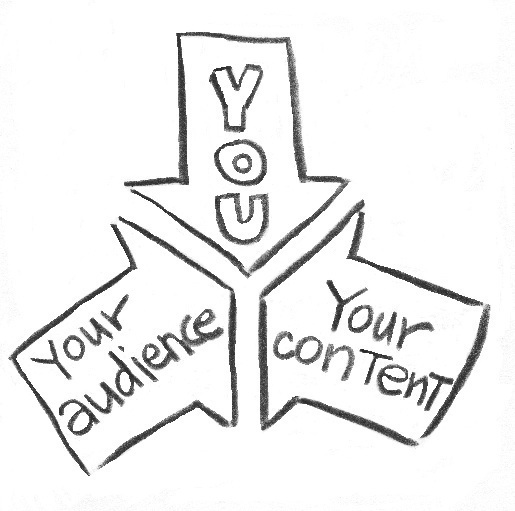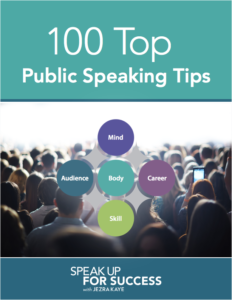 The Word “You” Doesn’t Sound Objective — and That’s the Point!
The Word “You” Doesn’t Sound Objective — and That’s the Point!
Are you a speaker who believes that you should never talk directly to the audience, because “objective” speech is more credible?
“Objective” speech sounds something like this:
Concerns about the budget are reasonable — even commendable.
Due to objections from the community, the decision to close the local hospital has been reversed.
Employees who exceed their sales goals will receive a bigger bonus this year than last.
And while those kinds of comments are good for disavowing responsibility, they’re lousy at getting an audience engaged, connecting with them, or persuading them to do… well, anything!
The Word “You” Helps Your Audience Care About What You’re Saying

We’ve all sat through (or slept through) speeches that had an “objective” tone. Imagine if the speaker above had said,
If you’re worried about the budget, you’re right to be concerned.
You did it! You made your voices heard!! And together, this community has saved our local hospital.
This year, we’re going to supersize your bonuses. And all you have to do to cash in is: Exceed your sales goal!
The difference is clear:
In the first three examples, you’re talking at your audience. In the second three, you’re talking to them — and to their goals, needs, and concerns.
The Word “You” Lets You Walk in Your Audience’s Shoes
Let’s assume that you’ve done some serious thinking — and if necessary, research — into what makes your audience tick.
The background information that you’ve gathered may not make it into your actual “script” (by which I mean script, bullet points, slide deck, or whatever holds the speech together in your mind).
But your insights will inform the way that you address your listeners, and may even give you the language and courage to step into their worlds.
Here’s an example:
I recently spoke to a group of owners of wedding DJ companies — small entrepreneurs who employ dozens of people and put on hundreds of events each year. As a small businessperson and former musician (and as someone who’s been to weddings!), I was able to make common-sense connections like this one:
When we talk about your clients’ four communications styles, we’re not taking about crazy clients who want six dancers for $500 bucks. We’re talking about your non-delusional clients.”
And because I was listening for the “you” phrases they used, I heard some terms and facts that got pulled into my speech, such as:
I see that you had a class this morning on stretching. That’ll help give you stamina for multiples — but you also have to stretch and warm up your voice.” [multiples = several events in a day]
Actual YOU words appear in both those examples; but so does the YOU attitude, which states that, yes, I’m aware of your specific situation, and I’m trying to address what’s on your mind.
For Great Public Speaking, Keep the “We” in “You”
A recent study, reported by Harvard Business Review, found that — in books published in the U.S. between 1960 and 2008 — the use of
- “YOU” words (“you” and “your”) had quadrupled;
- Personal pronouns (“I” and “me”) had increased 42%; and
- The use of “we” and “us” decreased by 10%
The study authors, and HBR, took this to be evidence of rampant U.S. individualism, and I can’t fault that claim. But if we’re talking more about “me” and “you,” and less about “us,” that’s also a failure to connect the dots.Remember that, as a public speaker, your job is to:- Represent your own position;
- Speak to your audience’s needs and concerns; and
- Unite those two positions with content that’s relevant to “you” AND “them.”
Do this — and keep using that magic word YOU — and you’ll connect with, and convince, your audiences!

To connect with (and convince) your audience, connect the dots between YOU and THEM.
 Buy 100 Top Public Speaking Tips: The Book!
Buy 100 Top Public Speaking Tips: The Book!In 25 years of speaker coaching, I’ve helped my individual speaker coaching clients develop their strengths and skills to become authentic and effective communicators.
Along the way, I’ve developed tips for everything from small talk to speaking up in meetings, from managing fear to making an impact.
And now, I’ve shared it all in 100 Top Public Speaking Tips: The Book. This beautifully designed PDF booklet is searchable, clickable, and categorized, so that you can find what you need, instantly.
